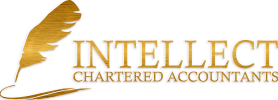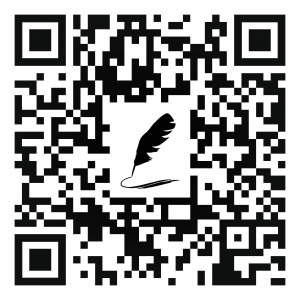The Sharjah Airport International Free Zone (SAIF Zone), which was founded in 1995, has a solid reputation as a preferred free zone among businessmen looking to invest in the Sharjah emirate. Companies operating in the free zone must have their books of accounts audited by auditing firms registered with the SAIF Zone, according to a rule set down by the SAIF-Zone administration. Companies that want to renew their trade licenses must have their financial records audited. The SAIF Zone authority requires that the following auditors conduct the auditing. To avoid the occurrence of any financial abnormalities, organizations must adhere to the annual audit obligation. Companies are not, however, permitted to have their books of accounts examined by auditors who are not on the SAIF Zone approved auditors list due to the strict rules.
About Sharjah Airport International Free Zone
Due to its effective procedures for business creation and advantageous location, the SAIF-Zone has been drawing investors for almost 25 years. Sharjah, one of the seven emirates, is regarded as the UAE’s industrial powerhouse. Sharjah is home to almost 40% of the UAE’s total industrial output. Petrochemicals, textiles, leather, food, and other non-metal sectors are among Sharjah’s leading industries. The businesses in the SAIF Zone profit from Sharjah’s superb sea, air, and land connectivity. Business with the outside world is more productive because of the Hamriyah Free Zone Port, Port Khalid, Port Khorfakkan, and Sharjah International Airport. In addition, Sharjah offers low housing and a readily available labor pool, both of which are advantages for businesses operating in the SAIF Zone.
Why Audit Is Mandatory From The Approved Auditor In Saif Zone?
Within 90 days of the end of the financial year, businesses operating in the SAIF Zone must have their books of accounts audited and submitted to the free zone administration. The SAIF Zone Authority must receive both the audited financial statements and the audit report. The companies will face legal consequences, such as the non-renewal of their trade licenses if they do not comply with the necessary audit obligation. Businesses must choose the top audit firms in Sharjah, UAE that are registered with the SAIF Zone administration, in order to prevent such legal consequences.
The company’s books of accounts, which were created in accordance with national and international requirements, must be examined and reported by the auditor and should be registered with the SAIF Zone. If these accounts are prepared in line with these regulations, they should be noted in the auditor’s report. If the accounts give a truthful and fair perspective of the company’s financial statements and are free from serious misstatements, such information should be stated in the auditor’s report as well. Companies operating in free zones are only permitted to carry out the tasks indicated in the trade license, and if any SAIF Zone company carries out tasks not covered by the license, the auditor must note this in his audit report along with any additional certifications the auditor may have.
How Companies Should be Prepared & Maintain Accounting Records For Auditing?
All businesses operating in the SAIF Zone are required to have proper books of accounts that reflect their current financial standing. The directors can make sure that the balance sheet and profit and loss statements are prepared in accordance with International Financial Reporting Standards by maintaining properly maintained books of accounts (IFRS).
The books of accounts need to contain a record of
- Assets and liabilities of the company
- Day-to-day entries of all sums of money received and expended
- Matters that necessitated the receipt and expenditure
The company’s registered office within the SAIF Zone is where the books of accounts must be kept in accordance with requirements. The accounting records ought to be available to shareholders or other company representatives at all times so they can be inspected. Based on the date of an establishment listed on the Certificate of Incorporation, businesses operating in the SAIF Zone can choose their first financial year.
Documents Needed for the Audit by the Saif Zone Approved Auditors
- Memorandum of Association (MoA)
- Articles of Association (AOA)
- Most recent trade license
- Balance sheet, profit and loss statement, and trial balance
- Information about VAT and Excise Tax Registration (If Applicable)
- Registers of Accounts
- Audit timetables (Fixed Assets Register, Ageing of Accounts receivable & payable with provision for bad debts, accruals, etc.)
- information on the year-end closing stock and work-in-progress
- Information on fixed asset purchases and sales during the year, along with the necessary supporting documents
- copies of the invoices and bills
Audit Services in Saif Zone
The top auditing firms in Sharjah, UAE can help businesses comply with local and international rules, enhancing their trust with customers, the government, lenders, and other authorities. Companies operating in the free zone are required by the SAIF Zone authorities to use only the auditors who have been authorized by the SAIF Zone administration. Intellect Chartered Accountants (ICA) is an approved audit firm in the SAIF Zone administration. Highly competent Chartered Accountants from Intellect will make sure that the SAIF Zone enterprises had kept their records in accordance with national and international laws, including the IFRS.
An accurate and fair opinion of the company’s financial statements will be expressed by ICA’s auditors, who are among the best external auditors in the UAE. They will check the books of accounts and other supporting documentation. A management letter will be given if the ICA auditors find any internal control weaknesses so that management can take the appropriate corrective action. Many businesses in the SAIF Zone have been using ICA’s services for years to generate audit reports and submit them on time to the authority. The auditors at ICA have years of expertise helping hundreds of clients comply with rules, enabling them to accomplish their objectives and expand their businesses.


